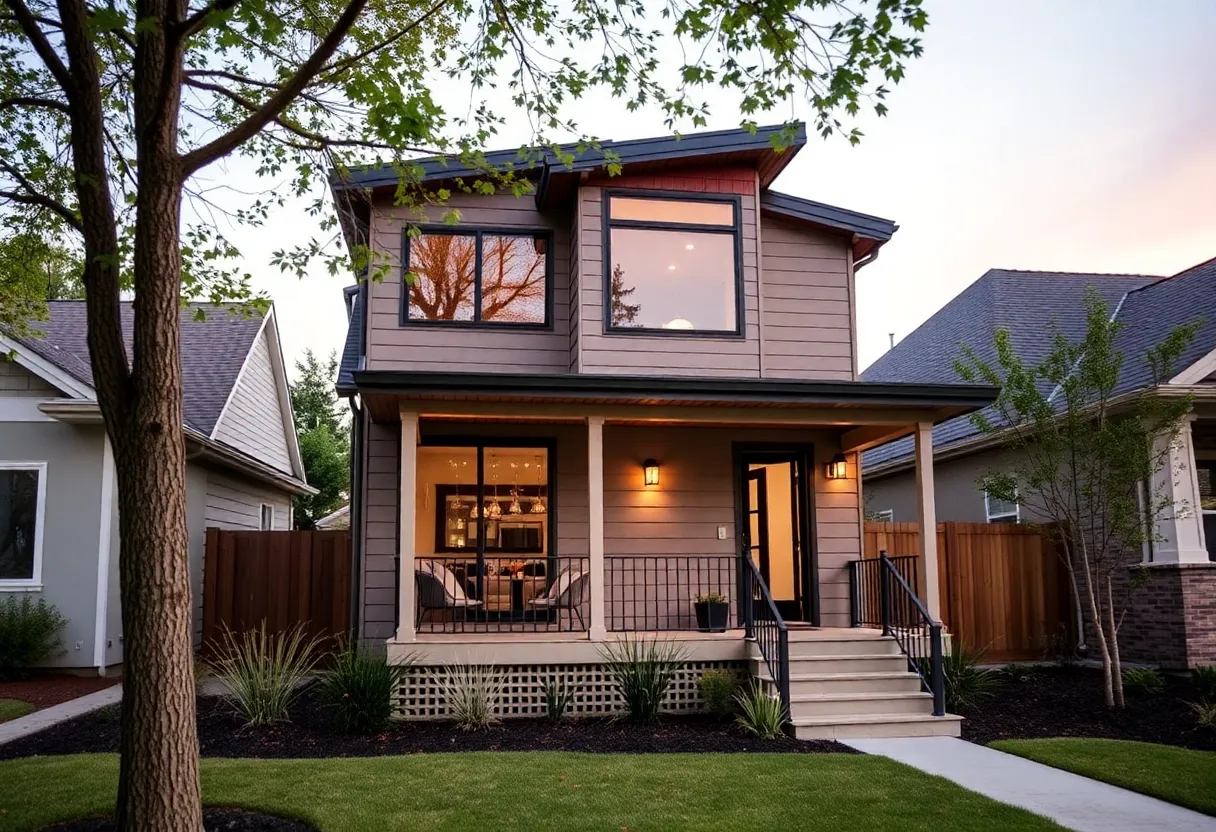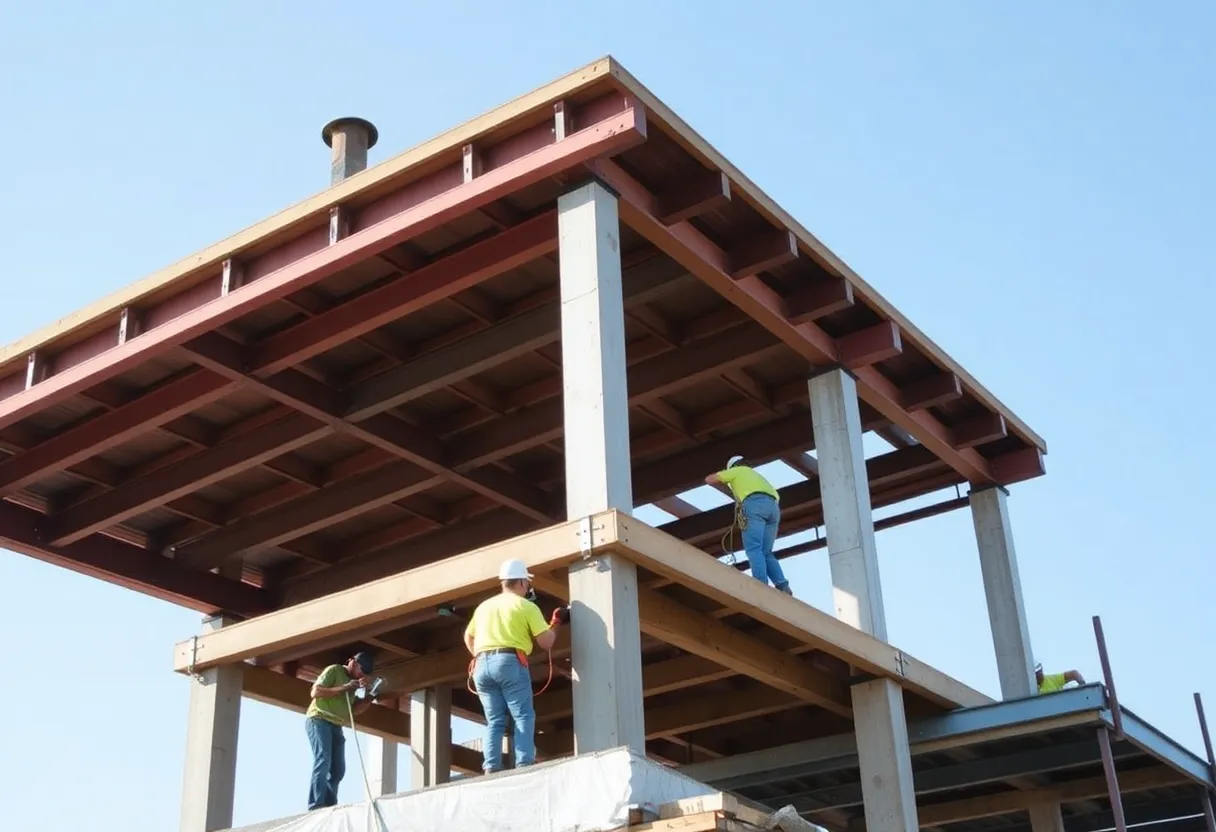News Summary
The SUPPLY Act, a bipartisan initiative in the U.S. House of Representatives, seeks to assist homeowners in building Accessory Dwelling Units (ADUs). This act aims to provide financial support through government-backed second mortgages, facilitating affordable housing options for lower and middle-income families. As cities grapple with housing shortages, the SUPPLY Act aims to simplify mortgage processes and promote ADUs as a solution to escalating housing costs, while also highlighting the economic benefits homeowners can gain from such constructions.
Bipartisan SUPPLY Act Offers Solutions for Homeowners to Build Accessory Dwelling Units
A new bipartisan initiative known as the Supporting Upgraded Property Projects and Lending for Yards (SUPPLY) Act has been introduced in the U.S. House of Representatives to assist homeowners in navigating the complexities of constructing Accessory Dwelling Units (ADUs). This legislation is primarily aimed at supporting lower and middle-income families amid the ongoing national housing shortage.
The SUPPLY Act empowers homeowners to secure a second mortgage specifically for funding the construction of ADUs. This loan would be fully backed by the government, offering a financial path that differs from the traditional reliance on savings and home equity loans. By enabling access to this funding, the Act hopes to alleviate some of the challenges associated with housing affordability.
Understanding Accessory Dwelling Units
ADUs are defined as smaller, independent residential units situated on the same property as a single-family home. They typically range in size from 150 to 1,200 square feet and may include features such as high ceilings, large windows, and modern appliances. Constructing an ADU usually costs between $100,000 and $300,000, depending on various factors like inspections and permitting fees.
Currently, many cities impose restrictions on ADU construction, a challenge that the SUPPLY Act does not directly address. Nonetheless, the rising popularity of ADUs is attributed to the increasing housing costs and their comparatively modest land requirements compared to traditional home builds.
Bipartisan Support and Broader Impacts
Introduced by Representatives Sam Liccardo, a Democrat from California, and Andrew Garbarino, a Republican from New York, the SUPPLY Act aims to provide tangible solutions for the growing housing crisis in the country. Notably, the Act reflects a bipartisan effort to tackle economic concerns related to home ownership and community support.
Research shows that ADUs can significantly increase property values. Homeowners can expect an average return of approximately 62% on their investment when building these units. For example, the median appraised value of a property with an ADU in California is approximately $1,064,000, while those without such units average around $715,000.
Local Examples Showcase ADUs’ Benefits
A case example is Christine Wilder-Abrams, a homeowner in Oakland, California, who created a 560-square-foot ADU in her backyard. This construction allowed her to remain in close proximity to her daughter, who now lives in the main house after a significant increase in its real estate value. The financial landscape for homeowners showcases a transition; as of October, the median home sale price in Oakland was listed at $751,455.
ADUs offer families an opportunity for greater independence and security, particularly for aging parents or adult children. They have been affectionately referred to in popular discourse as “granny pods,” indicating their growing acceptance as a flexible living arrangement.
Government Support and Future Programs
In tandem with the SUPPLY Act, state programs such as California’s Accessory Dwelling Unit Grant Program provide additional support by offering grants of up to $40,000 for homeowners looking to build ADUs. Moreover, the Keys to Equity program was introduced to help Black and low-income households in Oakland either build or legalize an ADU, emphasizing the importance of equitable access to housing solutions.
The surge in interest surrounding ADUs is reflected in building permit data, where ADUs accounted for 8% of permits in California in 2018, rising to 18% by 2022. As homeowners consider various options to manage living arrangements and enhance property value, the SUPPLY Act is poised to play a crucial role in paving the way for easier access to Accessory Dwelling Units.
Deeper Dive: News & Info About This Topic
Additional Resources
- Business Insider: Building ADUs in Backyards
- Wikipedia: Accessory Dwelling Unit
- NBC Bay Area: California Law Scammed ADU Buyers
- Google Search: Accessory Dwelling Units
- SF Chronicle: ADUs Return on Investment in Bay Area
- Encyclopedia Britannica: Accessory Dwelling Unit
- Business Insider: ADUs and Improved Lives
- Google Scholar: Accessory Dwelling Units
Author: Construction FL News
The FLORIDA STAFF WRITER represents the experienced team at constructionflnews.com, your go-to source for actionable local news and information in Florida and beyond. Specializing in "news you can use," we cover essential topics like product reviews for personal and business needs, local business directories, politics, real estate trends, neighborhood insights, and state news affecting the area—with deep expertise drawn from years of dedicated reporting and strong community input, including local press releases and business updates. We deliver top reporting on high-value events such as the Florida Build Expo, major infrastructure projects, and advancements in construction technology showcases. Our coverage extends to key organizations like the Associated Builders and Contractors of Florida and the Florida Home Builders Association, plus leading businesses in construction and legal services that power the local economy such as CMiC Global and Shutts & Bowen LLP. As part of the broader network, including constructioncanews.com, constructionnynews.com, and constructiontxnews.com, we provide comprehensive, credible insights into the dynamic construction landscape across multiple states.





